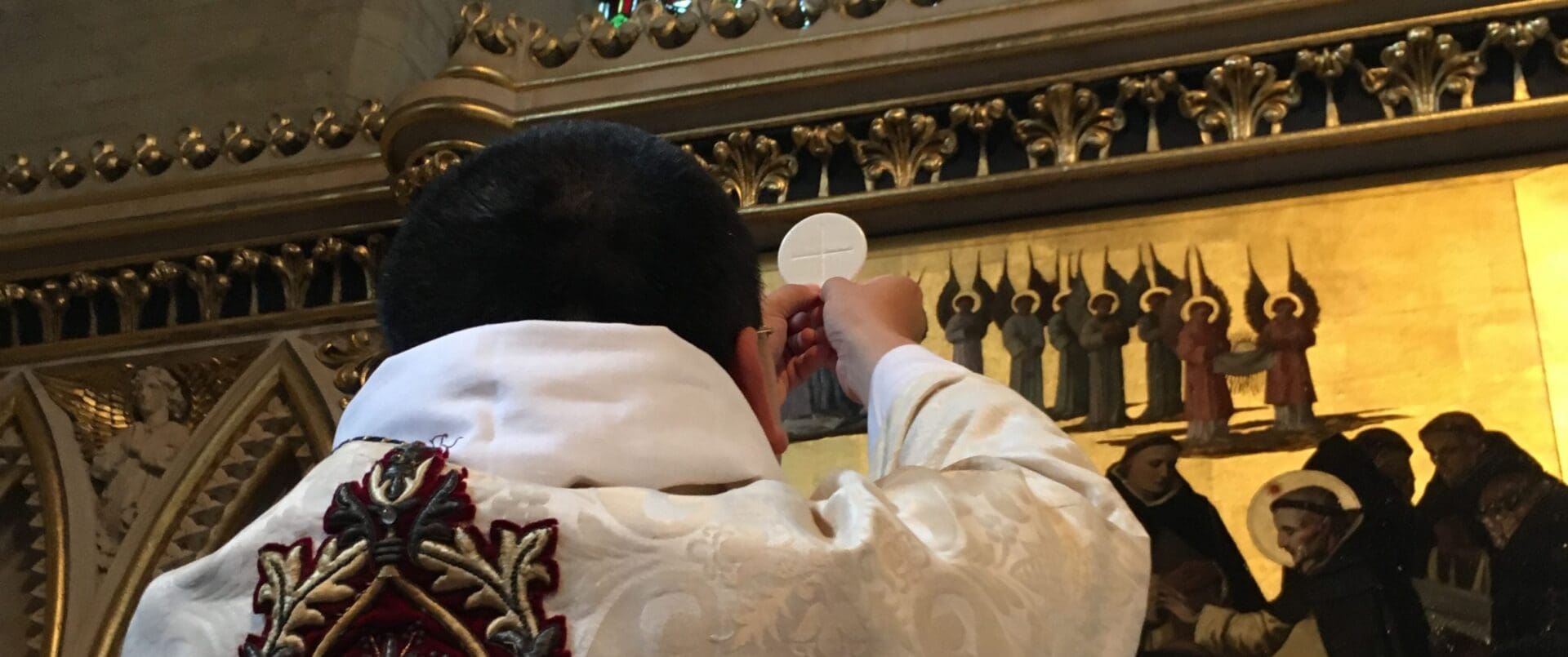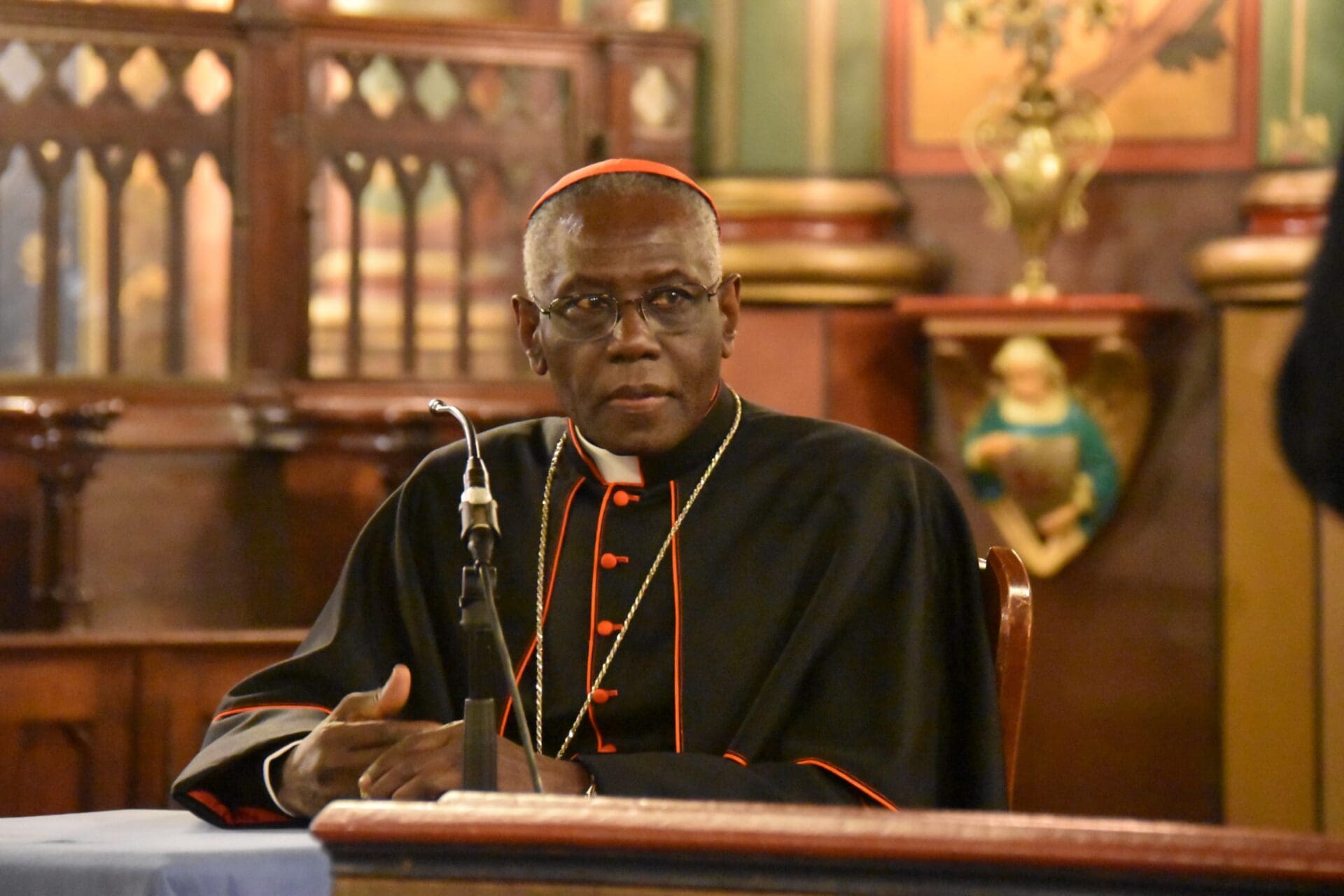Q: Can a tabernacle reside in a non-Catholic institution, such as a hospital?
A: It is important to keep firmly in mind that given the Catholic belief of the true presence of our Lord Jesus Christ in the Most Holy Eucharist, the question of where and how the Blessed Sacrament is to be reserved is of serious importance. The Code of Canon Law requires that the Most Holy Eucharist be reserved in cathedral and parish churches and other churches or oratories connected to the house of a religious institute or society of apostolic life (cf. can. 934 §1, 1º).
The 2004 instruction Redemptionis Sacramentum further clarifies that apart from the places listed in canon 934, it is forbidden for the Blessed Sacrament to be reserved in a place that is not subject in a secure way to the authority of the diocesan bishop, or where there is a danger of profanation (RS, 131). It further instructs that where such is the case, the diocesan bishop should immediately revoke any permission for reservation of the Eucharist that may already have been granted.
The 1993 Directory for the Application of Principles and Norms on Ecumenism (DAPNE) envisions that there may be situations where there is shared ownership or use of buildings or facilities (cf. DAPNE, 138-140). In these cases, DAPNE instructs that judicious consideration should be given regarding permission to allow reservation of the Blessed Sacrament so that “sound sacramental theology with the respect that is due” to the Most Holy Eucharist is secured. That is, along with the assurance of non-profanation and of appropriately retained authority of the diocesan bishop, before permission can be granted, consideration must be given as to whether other norms associated with the construction and care of the tabernacle and the reservation of the Most Holy Eucharist can be adequately secured.
These include questions concerning, for example: who is to be responsible for the tabernacle (cf. can. 938 §5); whether it is possible to celebrate the Holy Sacrifice of the Mass there at least twice a month so that the hosts can be replenished (cf. can. 934 §2); the construction of the tabernacle (cf. can. 938 §3); the room in which it will be placed (cf. can. 938 §2 and DAPNE, 139); whether there can be a sanctuary lamp (cf. can. 940); and other such norms listed in canons 937-938, 940 and other documents concerning the tabernacle and reservation of the Most Holy Eucharist.
The DAPNE further points out that before any such permission be given by the diocesan bishop, both Catholic and non-Catholic authorities involved should enter into a clear, written agreement as to how the tabernacle and space is to be handled, particularly with regards to sacramental celebrations and the norms listed above but also any civil law or other financial issues. These should include matters such as: who would have access to the room or tabernacle? Will other activities be taking place in the room or facility that would be incompatible with Catholic belief in the true presence or that would be scandalous? What right of access does the diocesan bishop or designated Catholic personnel have to the tabernacle and space? Can it be shown under civil law that the Catholic entity retains ownership of the tabernacle? Who carries liability and insurance responsibility should there be damage? Does the diocesan bishop retain the authority to direct how the tabernacle is to be handled in the space where it is located? Where these and other such issues cannot be agreed to clearly beforehand, permission should not be given.
Finally, following the norm of canon 134 §3, the permission may be given only by the diocesan bishop himself and not by the other ordinaries or local ordinaries listed in canon 134 §§1-2.

